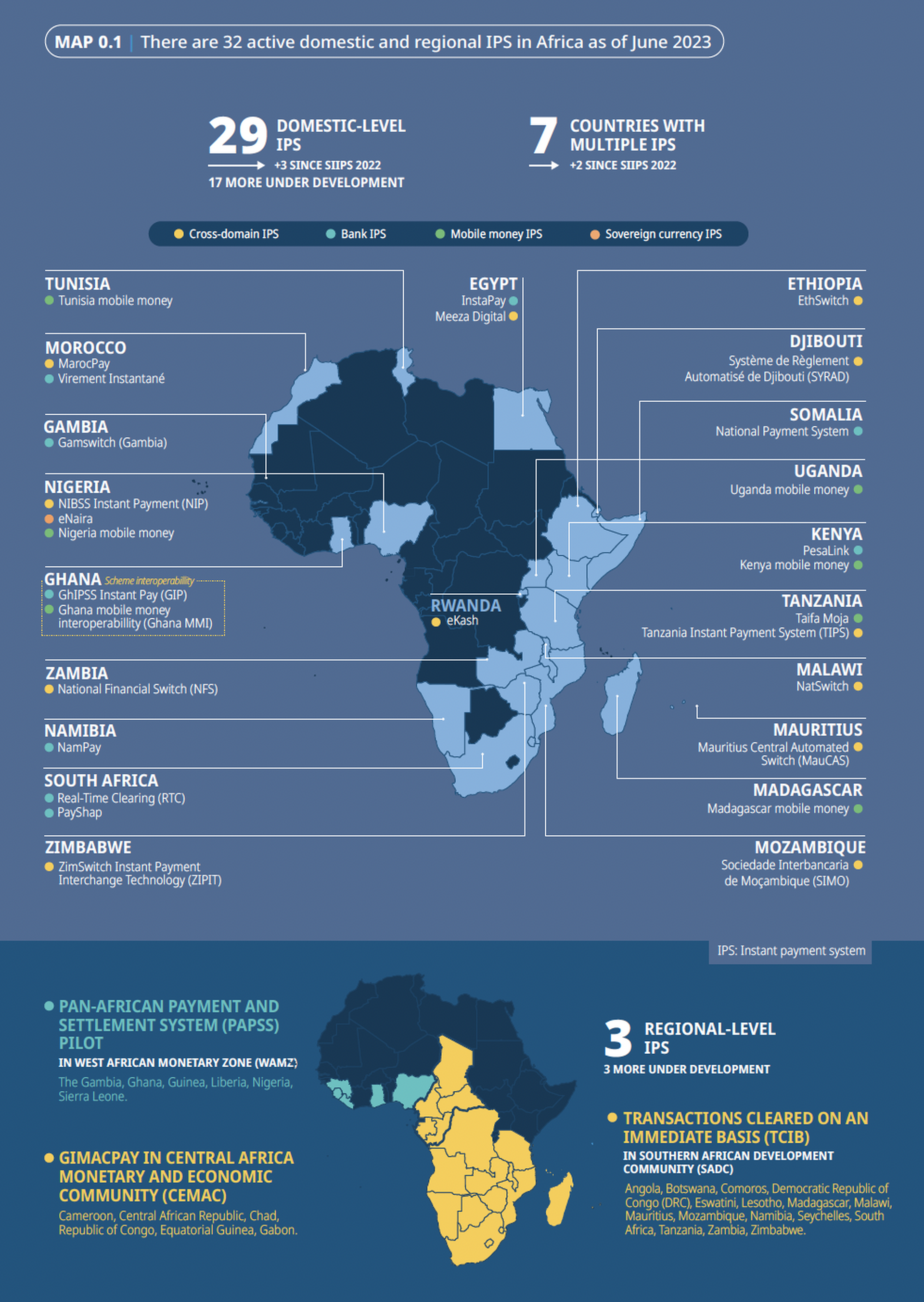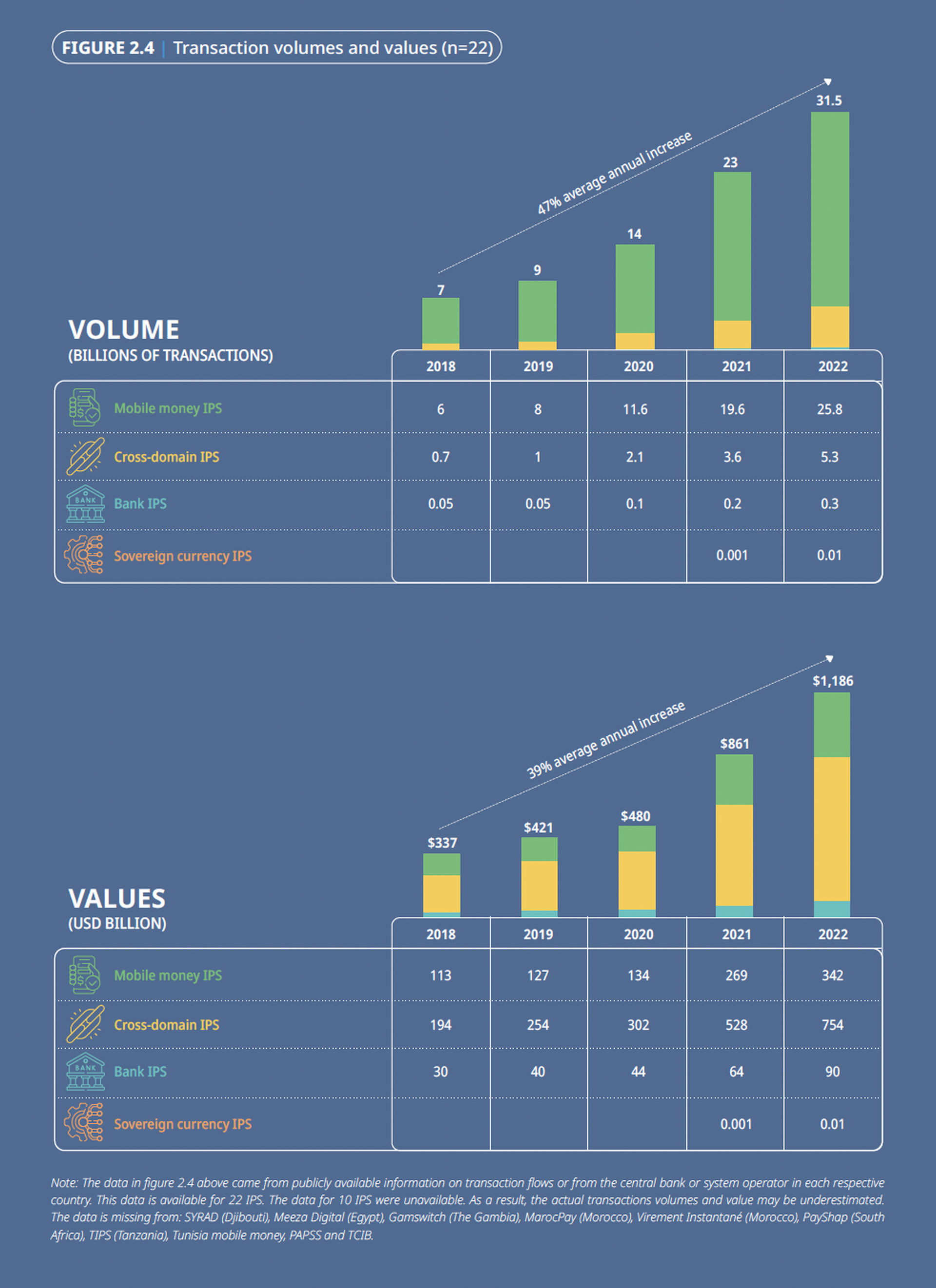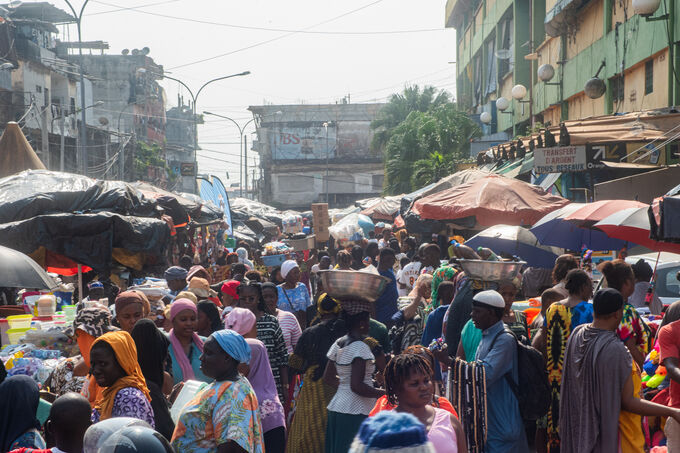
News
Lack of transparent data is hampering Africa's capacity to leapfrog inclusive instant payment systems!
by Sabine Mensah, Deputy CEO, AfricaNenda - 20 March 2024

While on a speaking tour in 2022 to disseminate findings from a report I co-authored, a central bank official from West Africa shared a key observation. Our report aimed to document the relationship between financial inclusion and the infrastructure provided by inclusive, instant payment systems and was based on publicly available data. But as the central bank official shared, the research was incomplete, because the publicly available data their country provided was outdated. Within a month, the central bank had updated its website and issued a press release with official statistics.
This anecdote illustrates the importance of accurate data and the need for greater transparency in public-sector efforts in sharing of digital financial services statistics. Even though cash is still king in Africa, mobile technology has provided the means to leapfrog the financial inclusion of millions of unbanked customers through instant payment systems. We need more of that transparency to generate evidence-based insights and learnings, to support enabling policy and regulatory reforms in favor of inclusive digital payment systems in Africa.
Robust data is key for growing a market
Much of the world is starting to focus on the incredible power of Instant Payment Systems (IPS) as a foundational enabler of financial inclusion.

IPS are public or public-private sector payment platforms capable of processing retail payments from any financial provider in real-time and 24/7. The 32 IPS in Africa processed nearly 32 billion transactions worth close to $1.2 trillion in 2022, as reported in the AfricaNenda State of Inclusive Instant Payment Systems in Africa Report, 2023. The volume and value of payments made by IPS to date represent massive progress from ten years ago.

Yet there is so much more to do. While impressive, these statistics underestimate the true picture since the data for 10 out of the 32 live IPS on the continent are not publicly available. Despite the growth in payment system availability, nearly half of the population across Africa does not live in a country with instant payment system capabilities. In those environments, making direct digital payments is only accessibleto the most affluent consumers and merchants and expensive for everyone. Lower-income customers, and those living in areas with limited connectivity, have no other option but to use cash, which is easily lost or stolen and requires physical proximity. Cash also leaves no paper trail, and therefore does not allow users to build a financial track record that lenders can use to underwrite credit.
What does this have to do with payment ecosystem data?
Data is a great motivator. It enables central bankers and payment ecosystem participants to benchmark their payments system status in relation to their peers, and to share learnings, communicate urgency, and show progress. There is precedent for data driving consensus and elevating the importance of an issue. Before the launch of the Global Findex Database in 2011, for example, there was no comprehensive source of global, demand-side data on how adults around the world access and use financial services. Today, the Global Findex is the benchmark by which the UN measures progress toward Sustainable Development Goal 8.10.2 on financial inclusion and informs national financial inclusion strategies for many countries around the world. In the ten years since its first edition, financial access has grown by more than 70%, in part motivated by the ability to see where progress is happening and where it is lagging. We need similarly comprehensive, trusted, and detailed insights into digital payments availability and usage in Africa—in this case, informed by both supply-side and demand-side data.
AfricaNenda set out in 2021 to begin creating those insights so they could be shared openly as a public good. Our annual State of Inclusive Instant Payment Systems in Africa (SIIPS Report) is the product of that effort. As we begin research for SIIPS 2024, our third edition, we have clearer insight into the data gaps we still need to fill given the multiple goals we have. They are, first, to document the landscape of instant payment systems across the continent; and second, to establish a standard definition of inclusivity in payment systems that we could use to map the existing payment systems along an inclusivity spectrum.
This effort requires both qualitative and quantitative data. We have faced challenges attaining both. Regarding qualitative data, creating a comprehensive landscape of instant payment systems requires details about the 32 live IPS across the continent, including their scheme rules, ownership structures and governance, as well as product details related to channels and supported payment types. These facts have been surprisingly difficult to access consistently. Despite the proliferation of IPS across the continent, there is a lack of public access to this basic information.
Regarding quantitative data, we have been collecting transaction data related to the volume and value of transactions running through IPS. The challenge here is one of both availability and standardization, since not all IPS operators and central banks share this data, and those who do use different data collection methods to report it.
Furthermore, very few differentiate between on-us transactions that are processed and cleared by a single institution (this is usually for transactions between customers of the same institution) vs. off-us/switched transactions between customers of different institutions or using different payment mechanisms. For SIIPS 2023, only Bank of Ghana and NatSwitch Malawi provided disaggregated on-us and off-us/switched transactions. In the realm of inclusivity, transaction data also is not gender disaggregated, making it difficult to assess whether these systems are reaching traditionally underserved groups.
Payment inclusivity in Africa starts with ecosystem transparency
Between the launch of AfricaNenda’s first research notes and the inaugural SIIPS report in 2022, we have evolved our research methods to try to fill some of the data gaps revealed by our interaction with the central banker referenced above. Our early research relied exclusively on secondary (desktop) research using publicly available data and information. We have since evolved to a mixed method approach that adds key informant Interviews and detailed case studies on select IPS, as well as quantitative consumer surveys and one-on-one interviews that incorporate the end-user perspective for select markets. For the SIIPS 2023 report we added the step of sending an official letter of request for transaction data to all central banks that govern a live IPS; we also sent letters directly to the IPS operators. We are grateful to the central banks of Ghana, Kenya, Madagascar, Mozambique, and Rwanda, and to the IPS operators of Kenya, Malawi, Rwanda, South Africa, Zambia, Zimbabwe, and the Economic and Monetary Community of Central Africa (CEMAC), for providing data directly.
Having comprehensive data disaggregated by on-us vs. switched transactions and by gender is essential for driving efforts to standardize how we measure progress in payment system availability and inclusivity. Making this information standard and public benefits everyone by creating a reliable source of credible information and best practices that can be used to inform IPS design, create consensus around what it means to be inclusive, and engage payment system providers, investors, development actors and regulators.
Our aspirations for SIIPS 2024 and filling the remaining data gaps are high. We have begun collecting data and will be sharing official data requests with all regulators and IPS operators in the coming weeks. We seek to engage with central banks, other financial / ICT regulators, and IPS operators to provide data and information as well as update and publish their payment statistics in the public domain. We want to ensure country and regional initiatives are properly represented in the SIIPS 2024 report so we can all measure and improve our path to inclusivity of IPS in Africa.
What would have seemed like only a dream a few years ago—interconnected inclusive instant payment systems across every country in Africa—is now within reach. We must all rise to the occasion to keep up this incredible momentum.


